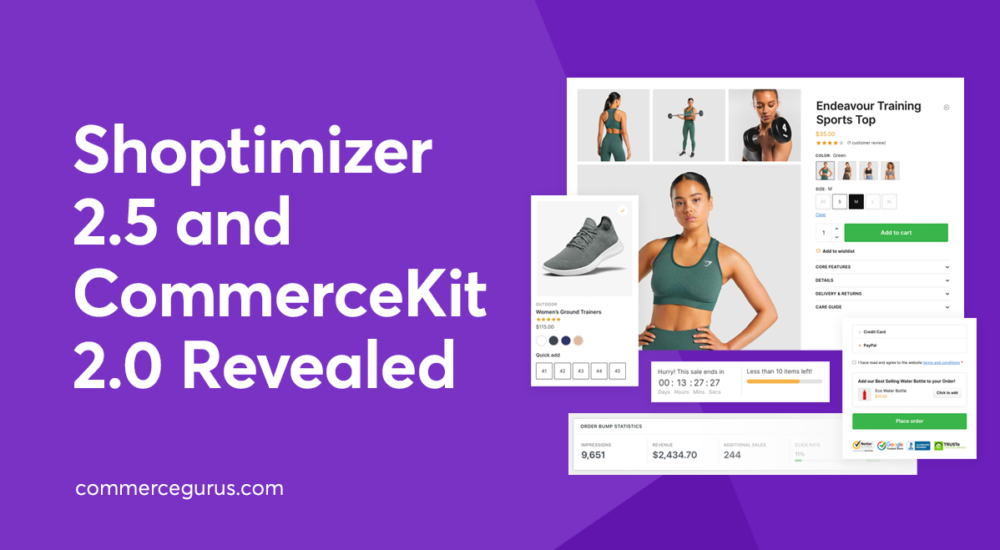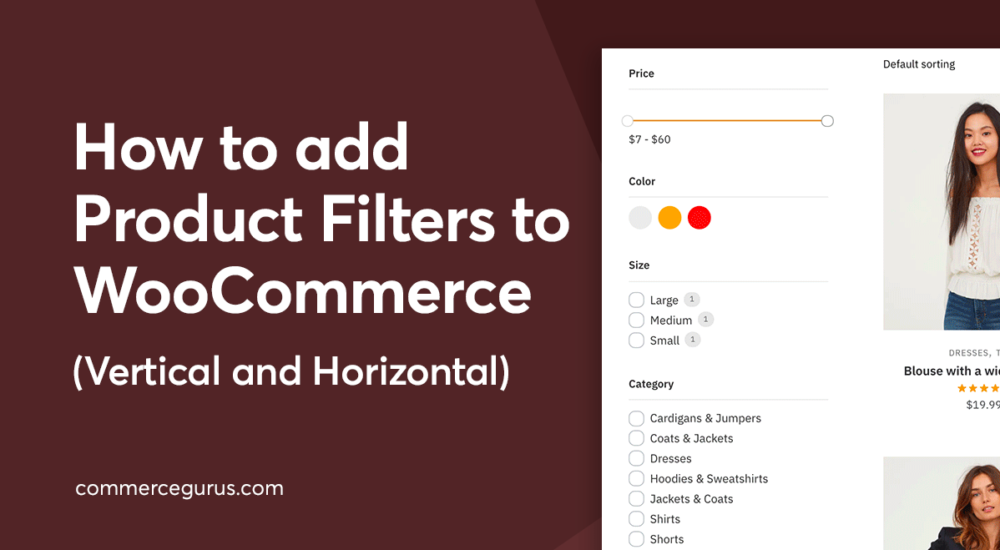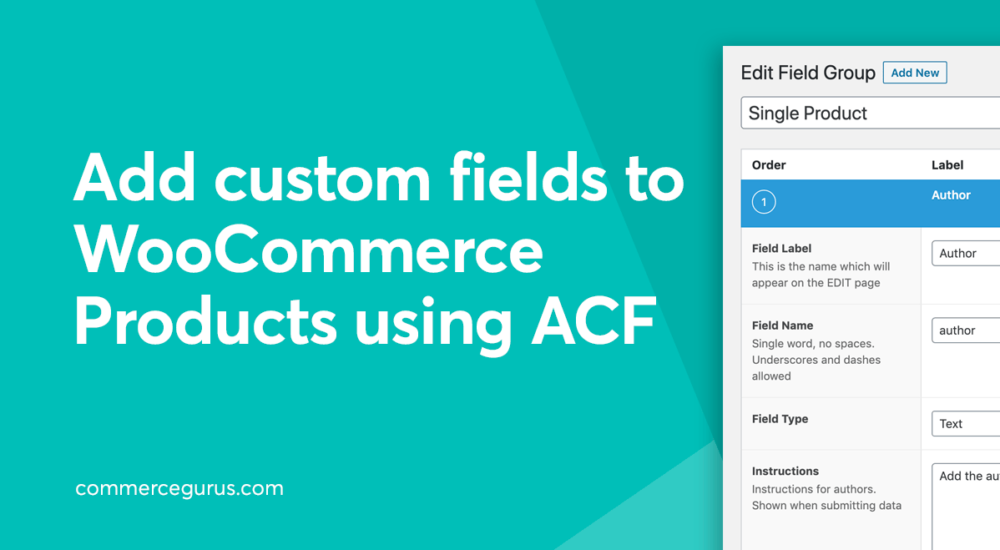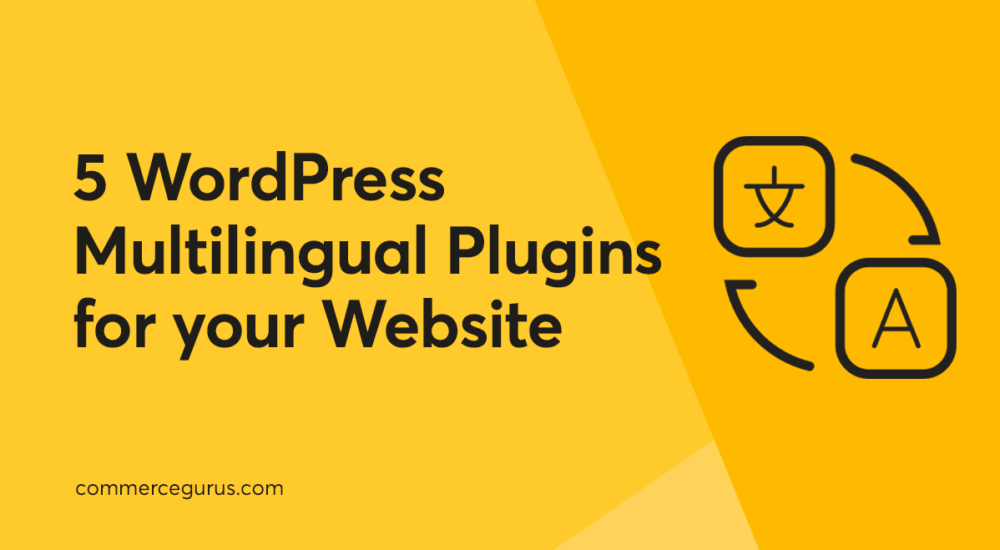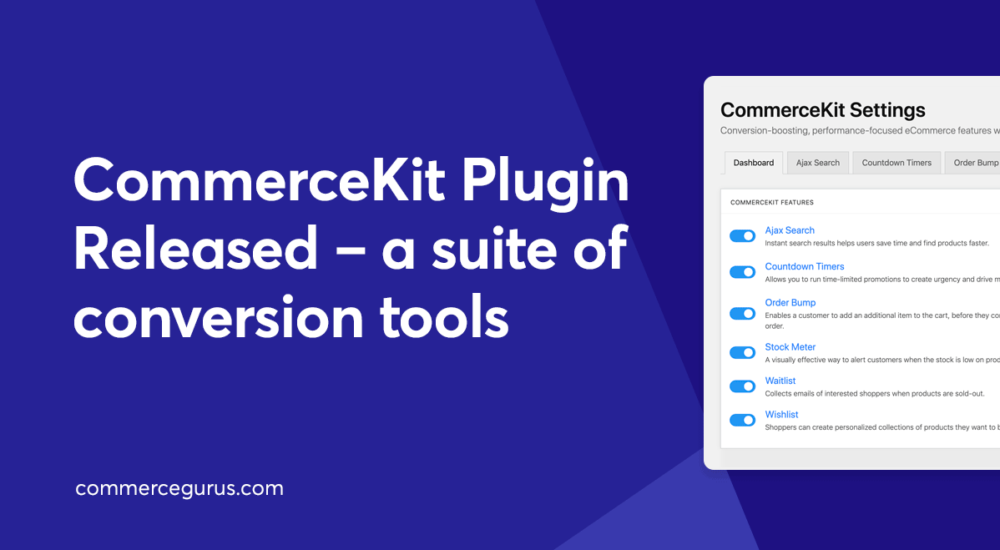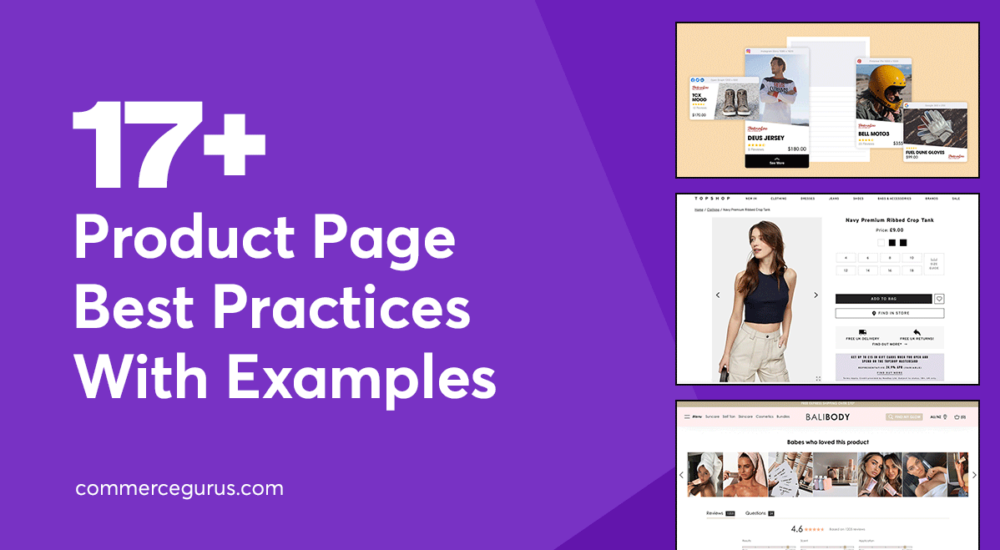We’re thrilled to announce the arrival of Shoptimizer 2.5 which includes version 2.0 of our CommerceKit plugin – the all-on-one conversion solution for your WooCommerce store.
This is a major new update and forms a key part of making Shoptimizer the de-facto tool to create a world class eCommerce store with WooCommerce.
This update includes features which ordinarily would require the purchase of multiple plugins, costing hundreds of dollars. Instead, they’re all in this feature-packed update! We’ve wrapped an incredible amount of functionality within Shoptimizer and CommerceKit. We think it’s a game-changer when it comes to WooCommerce.
There are a lot of new features to discuss so let’s get started!

